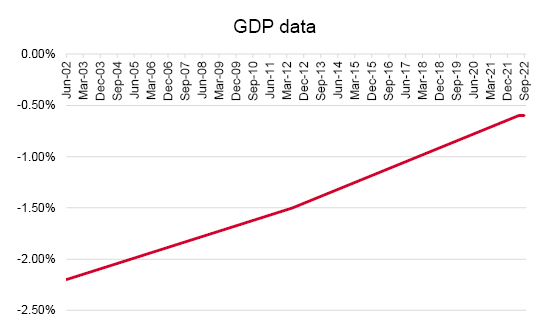


There’s been a significant amount of debate surrounding the cost or otherwise of bank holidays to the UK economy. This year May is awash with four-day working weeks as the country comes together to celebrate the coronation of King Charles III, which is being marked with an extra public holiday.
Hospitality businesses and supermarkets are already salivating at the prospect of extra pints being pulled and soaring sales of that quintessentially British quiche.
Greene King’s boss Nick Mackenzie reckons that pubs will get a “much needed” boost as revellers put the cost-of-living crisis to one side, and estimates that at his estate alone they will pour 1.8 million pints over the bumper weekend, with the chain helpfully crafting a coronation ale to mark the occasion.
Looking at last year’s Barclaycard spending data from the Platinum Jubilee weekend he has every right to be hopeful. Pubs bars and nightclubs saw spending shoot up a whopping 74.2% compared to the same period the year before and hospitality spend was also up by over 40% as people made the most of their time off with family and friends.
Which is particularly emboldening for an industry which saw 153 pubs lost from English and Welsh communities in the first three months of this year as pubs struggled with rising prices, particularly when it comes to energy costs.
Supermarkets are also in line for a big win. Although they will see opening hours cut, the celebratory nature of the day is expected to deliver the same kind of boost enjoyed by last year’s royal festivities.
Looking back at UK economic activity in the months when the last four “exceptional” bank holidays occurred you can clearly see the negative impact of giving Brits an extra day off work.
Figures from Kantar suggested that sales over the Platinum Jubilee were £87 million higher than the average in 2022.
But with food inflation still at uncomfortably high levels supermarkets will be using every trick in the book to pull in punters.
And investors have already seen how that dance is impacting profit margins, with Tesco reporting its pre-tax numbers had been sawn in half in the year to February 2023.
Perhaps that’s why investors don’t seem won over by the potential gains of a bank holiday. Looking at the FTSE 350 in the two-week period on either side of the Jubilee weekend the only retailers to enjoy positive share price movement were Ocado, and Primark owner Associated British Foods, and not a single hospitality business made it out of the red zone.
In fact, B&M Bargains was the biggest loser over the period and travel operators National Express and Wizz Air made up the bottom three despite travel and leisure, retail and hospitality being sectors that traditionally benefit from bank holidays.
The rest of the economy comes to something of a hard stop.
The impact of exceptional bank holidays on UK GDP
<
Source: ONS
GDP fell significantly in both June and September last year and previous Jubliees had an even more discouraging impact on output.
Whilst most shops, bars and restaurants will seize the day, most workplaces will shut and schools will also be closed, causing a major headache for parents working in sectors that remain open.
At a time the UK is already struggling to find any kind of forward momentum, the expected hit to economic growth will be an unwelcome one and manufacturing in particular, which has really been hit by supply chain issues and input costs, is often the sector that struggles the most.
The hit to GDP is only half the story, as the month following these “short” weeks usually results in a pretty significant bounce back.
To put it in monetary terms, Government modelling puts the cost of these extra bank holidays at £1.36 billion, though recent research from PwC has suggested that number might be closer to £831 million.
And the hit to GDP is only half the story, as the month following these “short” weeks usually results in a pretty significant bounce back.
Plus, there’s the feel-good factor to consider, with plenty of voices on hand to call for a permanent addition to the bank holiday roster, or even the introduction of a four-day working week, which they feel would actually boost productivity, something the country has struggled to achieve and something which has been successfully trialled at a number of businesses over the past year.
Then into the mix we must add the cost of staging the grand shebang and the rather slippery “tourism boost” – something that is utterly impossible to quantify.
But when you hear stories about Americans booking airline tickets to England as soon as the coronation date was announced, it’s clear these big royal spectacles give the country a caché that can’t be manufactured.
Rishi Sunak might be a self-professed lover of mathematics, but I dare say even he would struggle to pull all the disparate numbers together and come up with a definitive answer as to whether these “special” bank holidays are bad news for business or not.
But one thing investors can be sure of: even if the sun doesn’t shine, the extra day off is a chance to recover from the onslaught of economic data, as long as they ignore markets in the rest of the world.
Past performance is not a guide to future performance and some investments need to be held for the long term.
This area of the website is intended for financial advisers and other financial professionals only. If you are a customer of AJ Bell Investcentre, please click ‘Go to the customer area’ below.
We will remember your preference, so you should only be asked to select the appropriate website once per device.